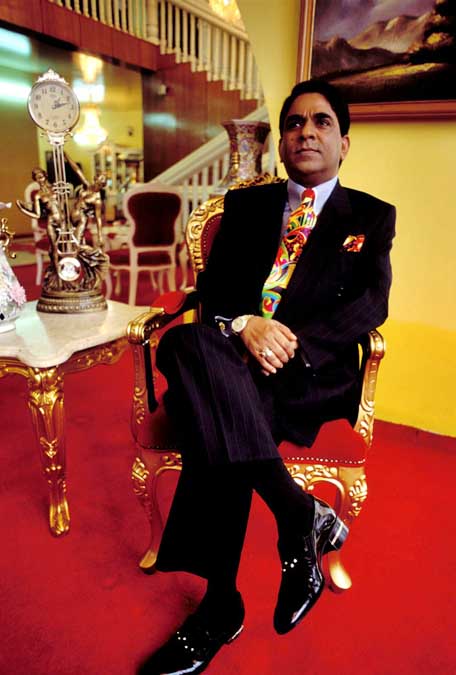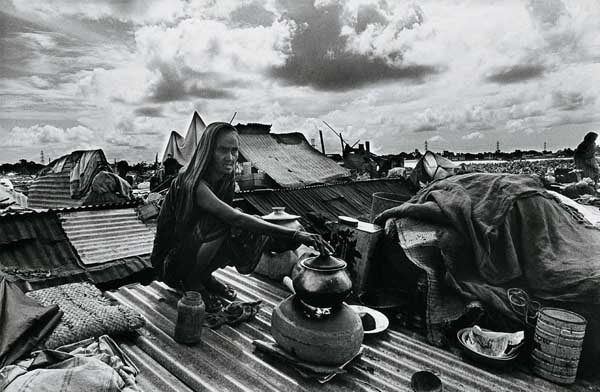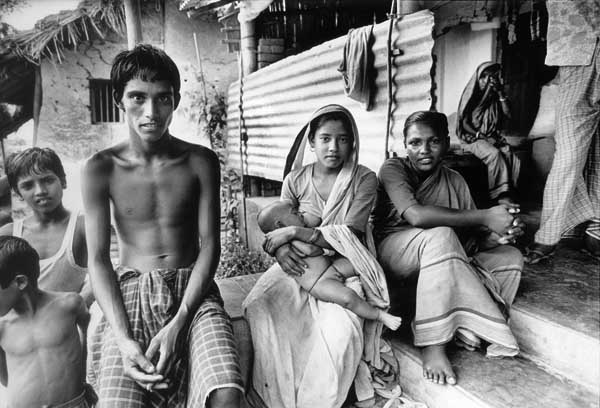With technology and language both being owned by the wealthy, class divides are intrinsically linked to this hegemony. How then do we see the most dominant of modern cultures, the Internet? The ownership of the Net is almost entirely Northern globally, and exclusively urban and elite locally. The hype surrounding the Internet and the top down approach with which it is meant to provide deliverance, hides the politics of corporate ownership, the way in which this media is controlled, and the simple fact that for the majority of the world the Internet doesn’t exist, and for many others in the South, it is barely effective.
The propaganda surrounding this imperialist tool, fits in well with the stated objectives of our colonial rulers: ‘ Natives must either be kept down by a sense of our power, or they must willingly submit from a conviction that we are more wise, more just, more humane, and more anxious to improve their condition than any other rulers they could possible have.’ ?Minute by J Farish dated August 28, 1838, quoted in B.K.Boman-Behram, Educational Controversies of India, p. 239
Language forms the biggest barrier to computer literacy in Bangladesh, and when less than 15% of the population has access to electricity, and a far smaller fraction owns computers, it is clear that only the wealthy will have access to this technology. Here, a modem costs more than a cow. Yet this technology and this associated language both exist. We must stare this dual hegemony straight in the face, but we cannot, dare not, let this technology pass us by. To find creative routes to turn this technology to our benefit is our greatest challenge.
The Internet can be a subversive tool. It remains the only medium which gives scope – relatively inexpensively, and without the support of the gatekeepers, for a lone voice to be heard. It is this unique characteristic that we have to nurture. The bigger players have the money, the clout, the physical strength and the social control to bludgeon their way through, but they do not have the flexibility, the ability to pop up and disappear at will, the speed of action or the elasticity to slip through the holes, that the well trained individual has. Given the important proviso of access, the Net is fast, cheap, and difficult to stop. It is the Net that we must use, to fight its own dominance.
Cultures dominate by creating norms that are not questioned by creating ‘accepted practices’ that become tools of oppression and by defusing the need for critical analysis. Consumer forces convince us of the need for bigger RAM, faster processors and software that gives us greater choice. Wildly disproportionate pay scales, between locals and expatriates and between English speaking and non English speaking co-workers teach us the importance of fluency in English. Indecent consultancy fees that siphon back most of what is provided as aid, make us believe that western values and skills are what one must strive to attain. Dominant cultures define who is primitive and who is civilized. The dissenting voice that questions the goodness of donor efforts, quickly discovers the reach of donor funds. One must not stand in the way of progress, particularly when that progress is backed by individuals whose personal wealth is greater than that of entire nations they are trying to civilise.
Now we are to behold a literature so full of all qualities of loveliness and purity, such new regions of high thought and feeling? that to the dwellers in past days it should seem rather the production of angels than of men. Madras Christian Instructor and Missionary record (1844) Let us examine these ‘productions of angels’ in Bangladesh in greater detail. Networking has traditionally been a strength of global organizations, multinationals, international donor agencies and NGOs, and large local NGOs. International telecommunications has been way beyond the means of small local players. Even interconnectivity amongst themselves has often been too difficult to maintain.
It was to address these specific issues that Drik set up a small Email network in 1994. Our server was a used 286 computer, and the phone line was shared for voice, fax and data. We used Fidonet, and rang Amsterdam (our gateway to the Internet) only twice a day, but even that transformed the way we worked. Our clients included large and small NGOs, government ministers, western embassies, The World Bank, students, corporations, activists. There were frequent power cuts, the telephone lines didn’t always work, a thunderstorm destroyed most of our modems, and we ourselves were only semi-skilled. Still our network grew. And though we were paying our Dutch counterparts 30 cents per kilobyte for transmitting files, we were making the system pay. We setup fax gateways, and an Email club where more experienced users taught the others how to use Email to extract information from the net, how to compress files to save on transmission costs, and how to decode files that looked like garbled messages.
Our oldest user, photographer and writer Golam Kasem, had just turned 103 and had never seen a computer before. I would cycle over to his house in Indira Road with a printout of a message from his grandson in Canada and next day peddle up to collect his reply. I remember the frail old man, straightening up the computer printout and adjusting his thick glasses as he held the paper by his tungsten lamp. Bangladeshi feminist writer Taslima Nasreen received a death threat from Islamic fundamentalists and was charged with blasphemy by the Government. We needed to move quickly – to create national and international pressure so Taslima could come out of hiding to alert friends overseas, PEN (the international writers support group) and Amnesty International and the campaign took off. Our fragile network was working.
There were other ways in which the technology was being used. The Daily Star newspaper set up a ‘Live from the Internet’ column. Readers who had no access to either computers or the Internet would write to the Star, which the newspaper would relay to Internet chat groups. The responses would get printed in the column. These hybrid off-line techniques became an important means for our communication. We setup electronic bulletin boards and a whole set of discussion groups sprang up. Important campaigns were initiated through these virtual conferences, and the network became a seat of resistance.
When full Internet services became available however, networks such as ours were quickly ditched. The government ignored us and gave permission only to large corporations and major NGOs. Interestingly, Grameen Bank, BRAC and Proshikha, three giant NGOs who used to get connectivity from us, set up their own ISPs. In Bangladesh, they owned the Internet. The conferences disappeared, and local networks that we had painstakingly setup rapidly vanished. We were being squeezed out of the market. Unable to compete at an economic level we found alternative means for providing support to our users.
The ISPs were not interested in servicing non-urban users. We maintained our off-line service, which could still service people with DOS based machines, with analog lines, living in remote areas. We leased lines from these NGOs and used them to transfer data to the Net, reducing our transmission costs. We began setting up new discussion groups and mailing lists. Most importantly, we set up our own web site, which we used to support our campaigns. We moved from providing connectivity which we could no longer provide reliably, to providing content.
Recently, when women students at a nearby university began a campaign against campus rape, our web site became a principal tool for advocacy. Pressure that was exerted internationally and nationwide added to the massive physical protests by the students forcing the establishment to conduct an enquiry. Five students of the ruling party were indicted. At it’s peak, our site was getting over 5000 hits per day. Articles were sent to the newspapers, and we began publishing things they had censored out. We were learning to wield our new weapon. We had been concerned by absence of working class and rural representation in mainstream media.
At about the time we set up our Fidonet network, we began providing photojournalism training to working class children. The going was never smooth and we made many mistakes, but these children progressed remarkably.
Excited by what the children had achieved, we tried setting up a distance education programme for rural Bangladeshi children. We set up a server in a town called Sylhet in the North East of Bangladesh. Using microwave links we then connected schools in nearby villages (using computers bought collectively by students and by us) to the server, A dial up link to Dhaka provided Internet mail. Sylhet has a lot of migrant workers who have gone overseas, and Email reunited these families. We are now helping develop multimedia training modules for teaching vocational skills. We tried linking the education programme with an afforestation scheme and even tried setting up a commercial service that would help subsidise the project. Things didn’t work as well as we had planned, but enough progress was made to interest other players in the project.
The focus however already seems to be shifting from the basic grass roots work that we had set out to do. Now that the big boys are interested, the transformation they may bring, might have the same effect as the changes they introduced to the Internet scene. A major cause of the high connectivity costs in our region is the monopoly of the telecom sectors in all our countries. This is not merely a national issue, but is linked to the unequal trade terms between nations of the South and the North. Alliances between global telecom players and local governments have resulted in local consumers getting shortchanged.
Vested interests have often required entire nations to follow technological solutions totally unsuited to local requirements. We began using the Net to pool together a team of regional IT professionals. We pleasantly discovered that our collective knowledge base could easily cut through the hogwash that the governments and corporations used.
The other useful collective decisions we were able to make related to developing local language tools, from standard UNICODE formats to OCR for local languages. Since many of our languages have common roots we found that work being done by several people across local borders could provide a lot of synergy. An area that has to be addressed, particularly where the international donor community is involved relates to the mind set that ‘appropriate technology’ is necessarily ‘low technology’. It is fashionable to design ergonometric rickshaws, and better spinning wheels. When we talk of Internet or IT there is the feeling that it is inappropriate for poor people and cannot have a role in ‘poverty alleviation’.
It is important to recognize that poverty cannot be addressed unless one addresses exploitation and distribution modes within society. This applies not only to regional power relationships but also to global imbalances. Politicians rarely feel accountable to voters and hide behind the lack of transparency of the government sector. Major decisions that affect community life are taken behind closed doors, where the people most affected have no access. Though the constitution grants equal rights to all citizens, legal, medical and educational rights are only realized for the minority in power, with women and children of poor communities, pegged at the other end of the spectrum, rarely aware of these rights, let alone being in a position to extract them from society.
Where information is power, denying information to marginalized communities, actively prevents the rural poor from overcoming the unequal power structures that they are trapped within. While it is in the interest of the powerful in society to restrict such access, it is also in the interest of the powerful nations to deny access and maintain domination. The unrestricted flow of general information is an essential pre-requisite for an egalitarian society
Shahidul Alam
Dhaka, 30th April,1999
First published in bytes for all
![]()










